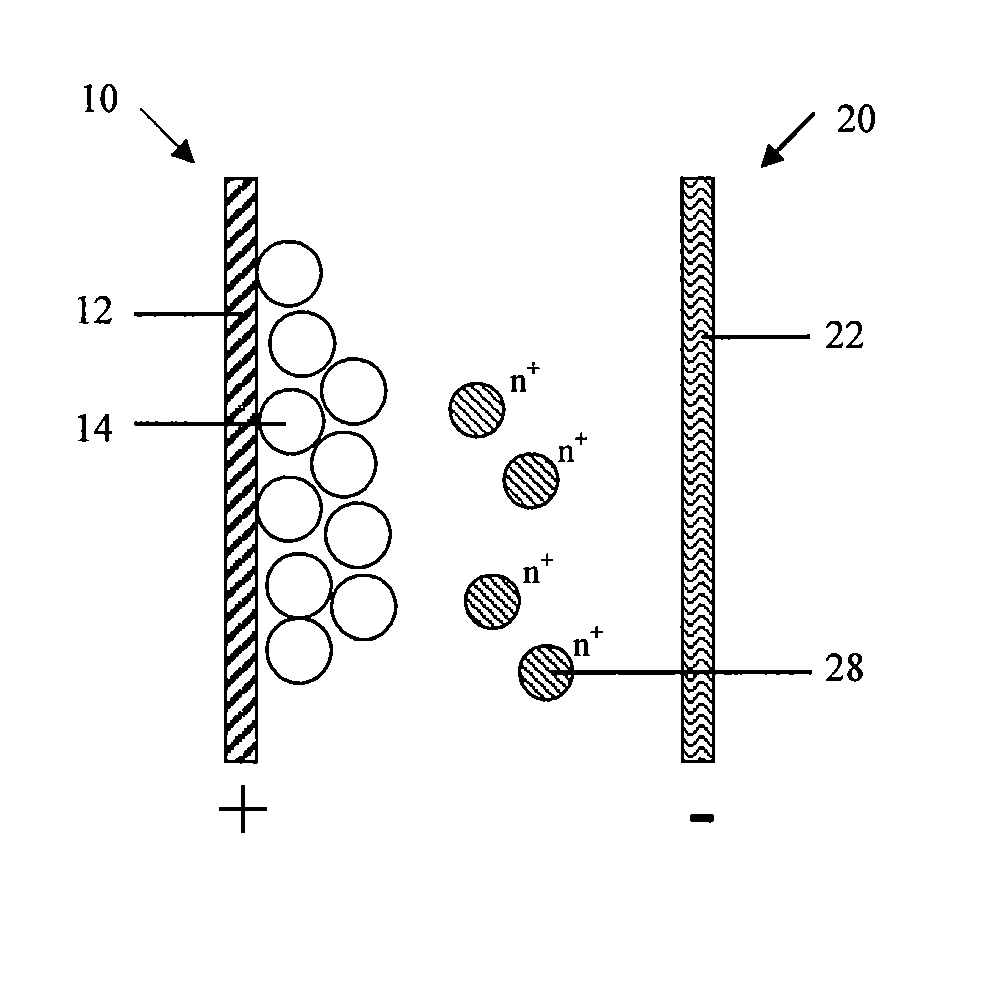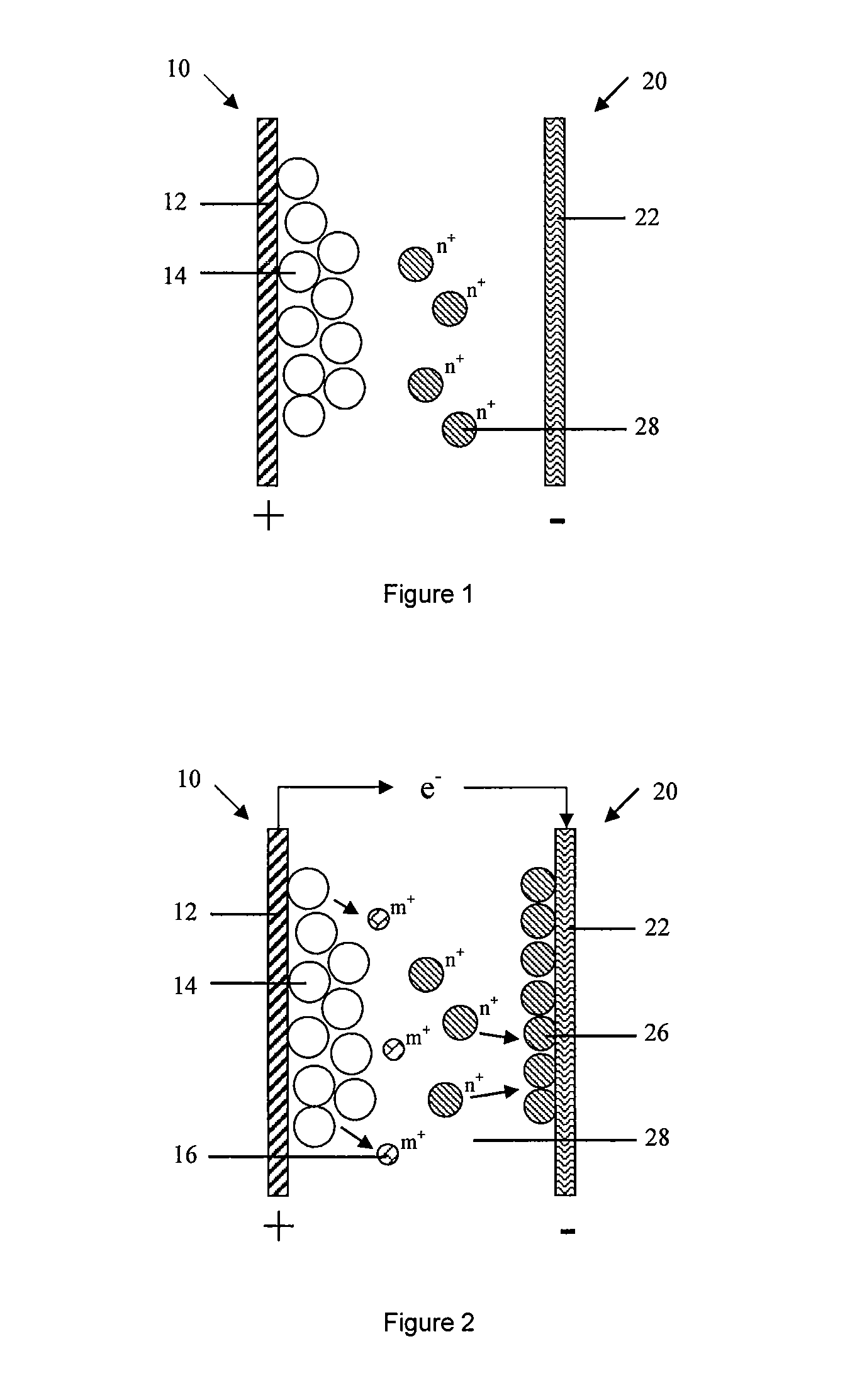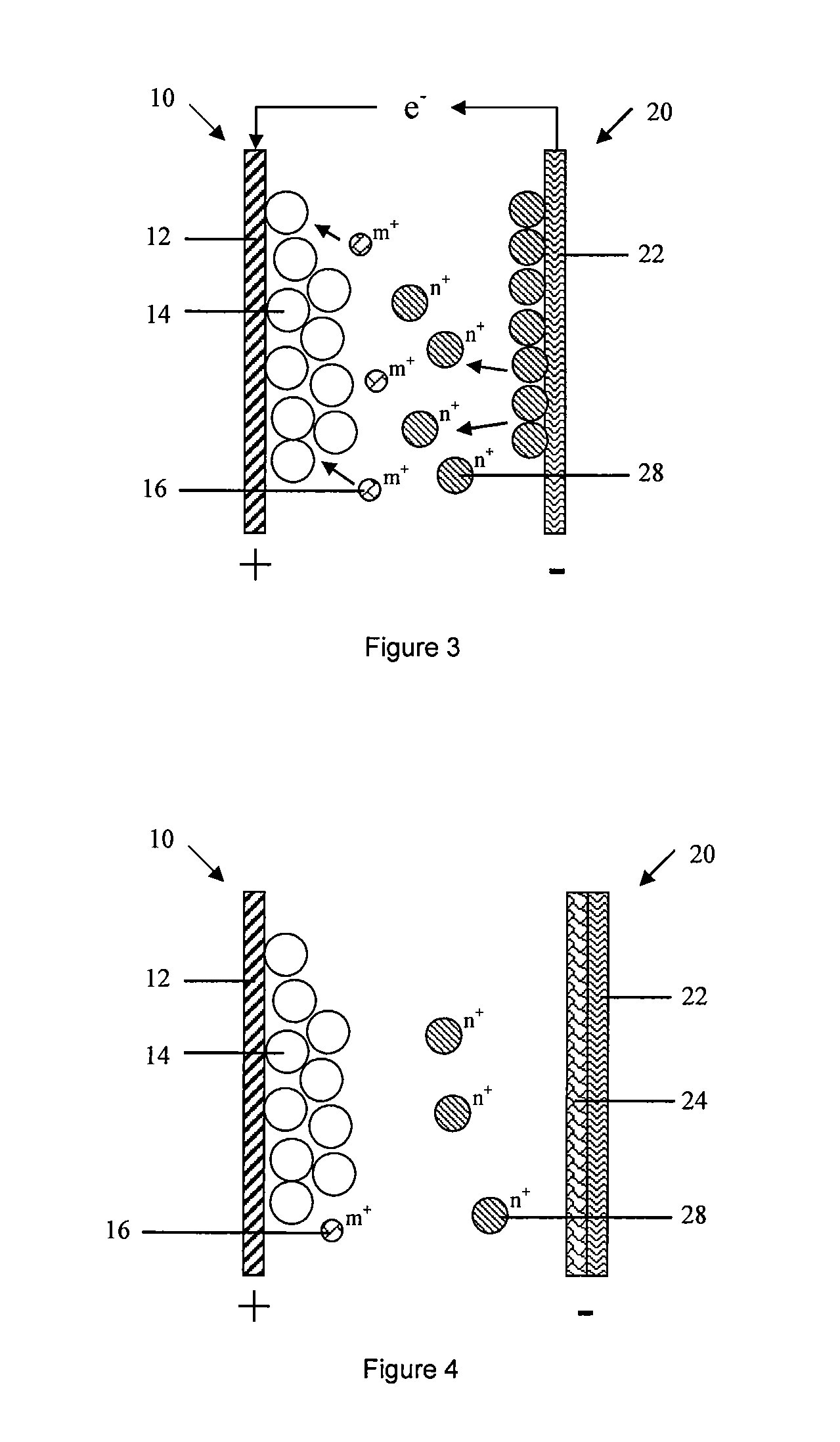Battery
a battery and battery technology, applied in the field of batteries, can solve the problems of high manufacturing threshold, high cost, safety risk, and low reliability of conventional lithium-ion batteries, and achieve the effect of reducing the risk of safety hazards, and reducing the cost of lithium-ion batteries
- Summary
- Abstract
- Description
- Claims
- Application Information
AI Technical Summary
Benefits of technology
Problems solved by technology
Method used
Image
Examples
embodiment 1
[0123]The battery comprises a cathode 10, an anode 20 and an electrolyte (not shown in Figures). The cathode 10 comprises a cathode current collector 12 and a cathode active material 14 which participates in the electrochemical reaction; the anode 20 at least comprises an anode current collector 22; the electrolyte comprises at least one solvent capable of dissolving solute, solute being ionized to at least an active ions 28 that can be reduced to a metallic state during the charge cycle and oxidized from the metallic state to the dissolved ion state during the discharge cycle.
[0124]As shown in FIG. 1, FIG. 1 schematically shows the battery structure in the first embodiment in which anode 20 only comprises an anode current collector 22.
[0125]The cathode active material 14 participates in the cathode reaction which is capable of reversibly intercalating-deintercalating ions or functional group. Specifically, the cathode active material 14 is capable of reversibly intercalating-deinte...
embodiment 2
[0170]As shown in FIG. 4, The second embodiment of the present invention provides a battery, the typical difference of battery in embodiment 1 and 2 is: anode 20 in the second embodiment further comprises an anode active material formed on the anode current collector 22, which can be oxidized and dissolved to the active ion state during the discharging process.
[0171]The anode current collector 22 served as a carrier of electronic conduction and collection does not participate in the electrochemical reaction. Anode active material 24 is formed on the anode current collector 22 by the means of coating, electroplating or sputtering. The method of sputtering includes but not limited to magnetron sputtering, in specific, anode current collector 22 is Cu foil, anode active material 24 is Zn, Zn is formed on the surface of Cu foil by electroplating.
[0172]Preferably, the anode active material 24 is formed on the surface of anode current collector 24 being suffered a surface pre-treatment; t...
embodiment 3
[0200]The third embodiment of the present invention provides a battery, the typical difference of battery in embodiment 3 and 2 is: anode 20 in the embodiment 3 only comprises an anode current collector 22, which is not served as a carrier for electron conduction and collection, but also participating in anode reaction as anode active material. Anode current collector can be oxidized and dissolved to active ion state during the discharge cycle, such as active ion 28 is Zn2+, anode current collector is Zn correspondingly.
[0201]In embodiment 3, anode 20 comprises an anode current collector that participates in electrochemical reaction, a porous layer or graphene layer is formed on the surface of anode current collector. More specifically, cathode active material is LiMn2O4, cathode current collector 12 is stainless steel net, anode current collector 22 is Zn, and electrolyte comprises water solution with Zn salt. Preferably, electrolyte comprises Zn salt and Li salt. Metal Zn can part...
PUM
| Property | Measurement | Unit |
|---|---|---|
| thickness | aaaaa | aaaaa |
| cut-off | aaaaa | aaaaa |
| cut-off | aaaaa | aaaaa |
Abstract
Description
Claims
Application Information
 Login to View More
Login to View More - R&D
- Intellectual Property
- Life Sciences
- Materials
- Tech Scout
- Unparalleled Data Quality
- Higher Quality Content
- 60% Fewer Hallucinations
Browse by: Latest US Patents, China's latest patents, Technical Efficacy Thesaurus, Application Domain, Technology Topic, Popular Technical Reports.
© 2025 PatSnap. All rights reserved.Legal|Privacy policy|Modern Slavery Act Transparency Statement|Sitemap|About US| Contact US: help@patsnap.com



